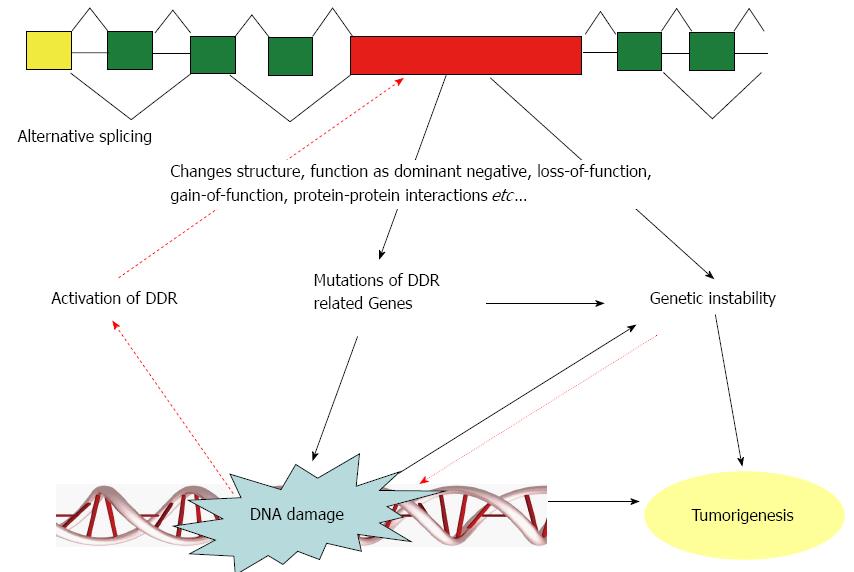Copyright
©2014 Baishideng Publishing Group Inc.
World J Gastroenterol. Dec 14, 2014; 20(46): 17305-17313
Published online Dec 14, 2014. doi: 10.3748/wjg.v20.i46.17305
Published online Dec 14, 2014. doi: 10.3748/wjg.v20.i46.17305
Figure 1 Schematic view of the possible connection between alternative splicing and DNA damage.
When DNA damage occurs, DNA damage response (DDR) is activated, which then activates alternative splicing that leads to mutations and splicing alteration of DDR-related genes. This process leads to the accumulation of DNA damage. DNA damage is a major cause of genetic instability. On the other hand, alternative splicing directly or indirectly causes genetic instability via mutations of related genes including DDR-related genes. Genetic instability is one of the major causes of tumorigenesis.
- Citation: Rahmutulla B, Matsushita K, Nomura F. Alternative splicing of DNA damage response genes and gastrointestinal cancers. World J Gastroenterol 2014; 20(46): 17305-17313
- URL: https://www.wjgnet.com/1007-9327/full/v20/i46/17305.htm
- DOI: https://dx.doi.org/10.3748/wjg.v20.i46.17305









